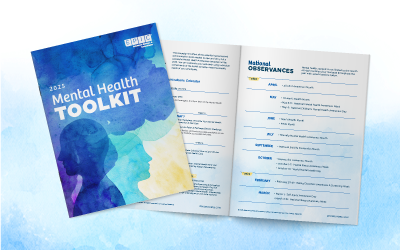EMPLOYEE BENEFITS
The Truth About Weight: Why Weight-Based Health Programs Can Cause More Harm Than Good
Viewpoints from Craig Schmidt
Wellness programs, challenges and social media influencers focus on weight as if it’s a true indicator of health. Hate to break it to you (and them) – it’s not. Health is more than a number on a scale, it’s a way of life that should be as diverse in its evaluation and outlook as people are.
Let’s quickly define health; according to the World Health Organization (WHO) health is the state of complete physical, mental and social wellbeing – not merely the absence of disease. I don’t see weight in there, do you? And the term “wellbeing,” what about its meaning? According to the Centers for Disease Control and Prevention (CDC), it’s the measure of how someone feels about the quality of their life, i.e. the emotions surrounding their living state. So, for someone to be considered healthy they also need to feel good about their physical, mental and social experiences.
The focus that some wellness programs put on weight to determine who is a healthy person is detrimental.
Someone with an optimal Body Mass Index (BMI) could be less healthy than a person who is considered overweight or obese but gets a passing grade because of their height-to-weight ratio. The “obese” person may have a low body fat percentage, great cardiovascular health and the diet of an ox (if you’re wondering, they are herbivores). And don’t you think “overweight” folks of the more “unhealthy” kind are aware of their issue? Creating a health and wellness program that focuses on weight alone might deter them from participating or making progress on the real goal of being healthy.
Instead of focusing challenges on a number, work toward creating sustainable behavior changes through education on nutrition and physical activity.
Promoting drastic short-term changes could have a serious negative impact on physical and emotional needs. Participants don’t want to feel awful on their way to achieving their target weight only to fall back into old habits because it felt better being unhealthy than being “healthy,” which they never actually were.
I recently read “No Sweat: How the Simple Science of Motivation Can Bring You a Lifetime of Fitness” by Michelle Segar, Ph.D. In her book, she promotes creating goals that focus on feeling and purpose – defining why you’re attempting to get healthy and finding ways to enjoy the experience – to find a true state of wellbeing. Being healthy shouldn’t feel like a chore.
How can you support your employees in authentic wellbeing and incorporate personalized journeys to health?
Take a look at my colleague Erin Milliken’s article on behavior change models, in Benefits Magazine. Find ways to make your wellness program inclusive, allowing individuals of all sizes, fitness levels and abilities to participate. Identify intrinsic incentives to go along with your extrinsic monetary incentives. What truly motivates your employees on an individual level to be engaged while feeling good about their health and wellbeing? Our Wellness and Health Management team is here to help you figure it out.
For our coronavirus coverage, visit epicbrokers.com/coronavirus
Join the conversation – participate in, and see results from, our In It Together pulse surveys on our COVID-19 strategic collaboration and idea-sharing forum. Visit epicbrokers.com/insights/preparing-for-the-new-normal
Related Content
Products
Employee Benefits Consulting
Our dedicated benefits team is focused on delivering better outcomes – to both your benefits program and ...
Products
Wellbeing & Health Management
Our consultants help you create a strategy around health management that will impact your culture and your ...
Products
Communications & Engagement
Our Communications & Engagement team develops effective campaigns that enhance workforce awareness and ...



